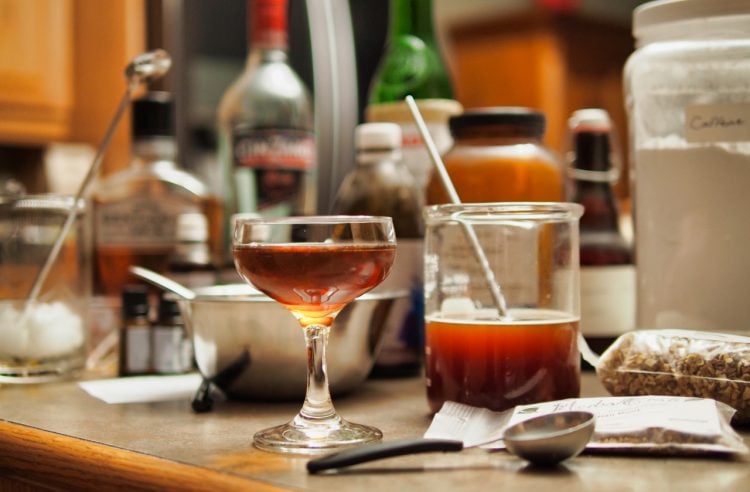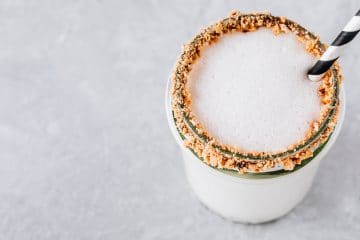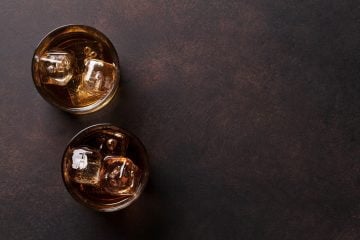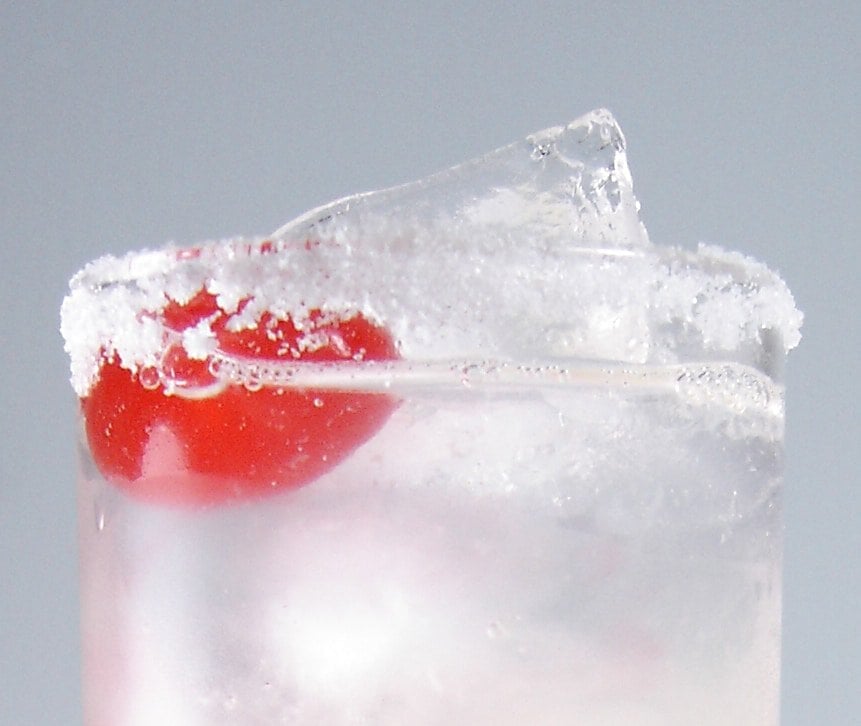Dry January has people talking about small amounts of alcohol in non-alcoholic cocktails and whether it is appropriate. Camper English on Twitter (@alcademics) is looking for non-alcoholic bitters so the two go hand-in-hand and this seems like a topic I can deal with.
Legally, non-alcoholic beverages are classified as less than 0.5% ethanol by volume. But as modern times dictate, that isn’t good enough for some people, though clinically 0.5% is insignificant. A 355 ml can of beer at 0.5% equals 1/10th of a standard drink. You’d need to drink 3.55 L (roughly 1 gallon) to get the equivalent of a single 5% abv beer. Good luck with that.
Oil and water do not mix and that is why non-alcoholic bitters are rare. Simply soaking herbs in water doesn’t extract the flavour oils, and it can also extract undesirable compounds that make the flavour less than pleasant. So how do we get the oils without using a solvent like alcohol? Distillation is our friend and you don’t even need to own a still. So let’s begin this exercise.
Access to 100% pure steam distilled, or even CO2 extracted, essential oils are as easy as it has ever been to acquire. As long as you purchase all-natural, 100% pure ingredients, you will avoid ethanol because some flavour extracts are cut with ethanol, like vanilla. For this recipe, I’ve decided to use some of the essential oils I have on hand. When I wrote Fix the Pumps, I collected a few to many for my soda fountain experiments.
How to Make Non-Alcoholic Cocktail Bitters
Miscible Aromatic Bitters
4 drops Cinnamon Oil
2 drops Nutmeg Oil
2 drops Black Pepper Oil
2 drops All-Spice (Pimento) Oil
4 drops Bitter Orange Oil
1 drop Cardamom Oil
1 drop Clove Oil
With alcohol, simply adding these oils and mixing will make a clear homogeneous solution, but we need another solvent to mix them with, and our options are limited. Most people would use glycerin, which works but has some issues, the real alternative is caramel colouring. You can find this at grocery stores and is used to give stews a nice brown colour or you can make your own, it is quite simple. You can follow the dark caramel syrup recipe, but go a little further and make it really dark. This heavily caramelized sugar takes on a bitter flavour, which is what we want.
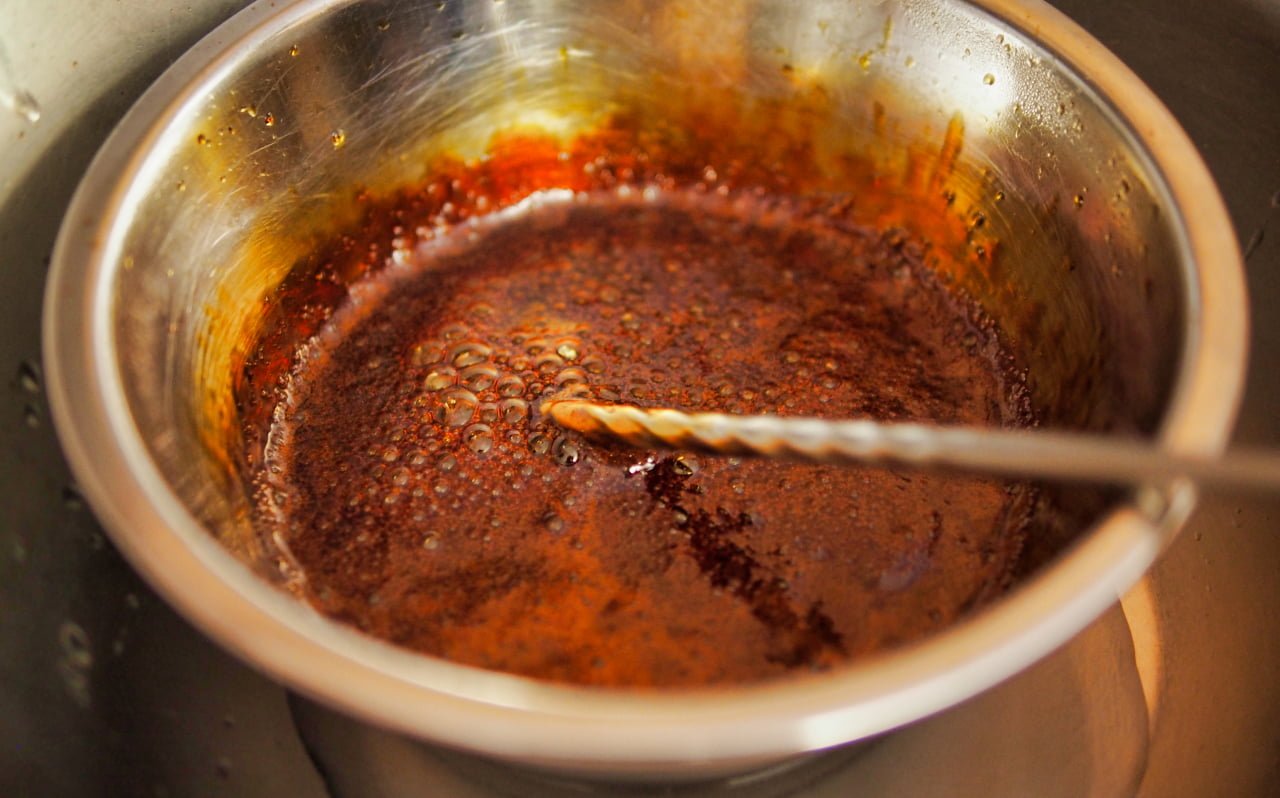
Take your oils and mix them with 1 tablespoon of the burnt sugar colouring and optionally add ¼ teaspoon of Polysorbate 80 (a safe food grade solubilizer that is used in all sorts of foods, like ice cream). Mix until combined in a container that is at least 500 ml (2 cups) in size. Set aside.
Stabilizer: Gum Arabic & Sugar
To help stabilize the essential oil mixture, in water, gum Arabic is indispensable. When making flavoured simple syrups or liqueurs, I always add a teaspoon or three to help keep the oils in solution. In this experiment, mix 1 teaspoon of gum Arabic with 2 tablespoons of sugar in a container that will hold at least 1 cup of liquid. See the next step.
Bittering Agents
Extracting bitter components from herbs and spices is difficult with water, but there are other bitter compounds that are soluble in water, like caffeine. Yep, caffeine is a perfectly legal flavouring compound found in many things, like Pepsi, Red Bull or coffee. In its pure form, it has an intensely bitter flavour, that isn’t offensive. But, there are limits to its use because too much caffeine can have unwanted side effects, like wakefulness—at 5 in the morning, when you want to be asleep.
This is optional, but add 3 grams (¾ teaspoon) of pure caffeine powder to the sugar/gum Arabic mixture and mix the dry ingredients until combined.
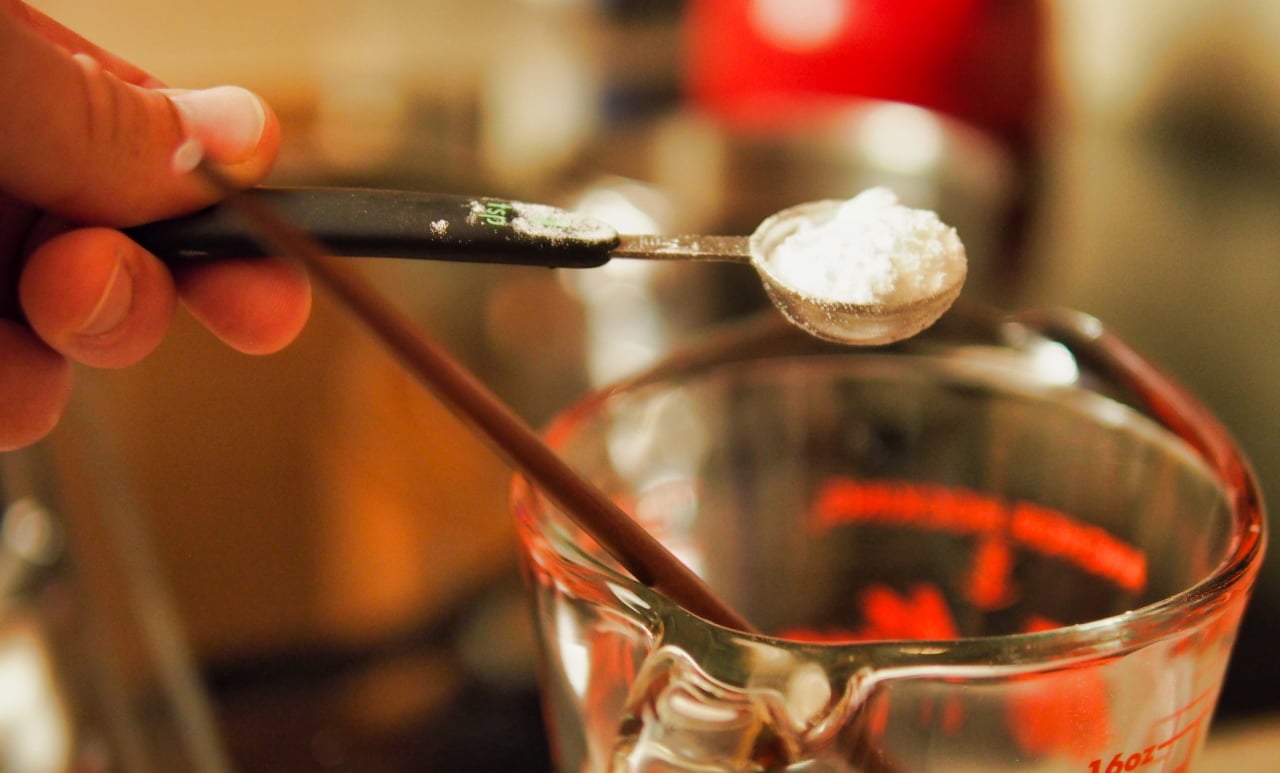
In a small pot, add 150 ml of water, 2 teaspoons of gentian root and 2 teaspoons of dried orange peel. Bring to a boil and then let it steep for 5 to ten minutes.
Stain the hot mixture into the sugar-gum Arabic-caffeine powder mixture with lots of stirring and keep stirring until everything is dissolved. It happens fairly quickly.
Take the warm mixture and add it to the burnt sugar-essential oil-solubilizer mixture and stir until everything is combined. Take some warm water and fill the container to the 300 ml mark (roughly 1¼ cup total volume).
If you don’t have solubilizer, use a hand-held immersion blender to give the mixture a good spin to disperse the oils and get them into solution.
If you want to add to your collection of molecular mixology lab equipment, find a high-shear emulsifier and you can make an emulsion from just water and oil because they run at 20,000 rpms.
I find the idea of completely alcohol-free bitters a bit tough to accept because small amounts of alcohol are very useful (anti-bacterial preservative, solvent, etc.). Alcohol can be found in so many things and the human body has evolved to handle ethanol with complete ease. A few dashes of alcohol-based bitters in a drink will not have a negative impact. There are certainly no health consequences as the human body handles small amounts of alcohol perfectly well, even if a person has issues with alcohol dependence. A millilitre of alcohol will not give them a buzz. Vanilla extract is more potent than most bitters and mixing it in whipped cream would be the equivalent.
The reason that anything below 0.5% alcohol by volume is considered non-alcoholic is that at that level it will not affect the human body or mind.
Non-alcoholic bitters can be made, they are bitter and aromatic and don’t make a cocktail cloudy. However, to get a stable formula, you need to add some other agents that may or may not incite a moral conundrum. If you plan to store these bitters for any length of time, a preservative/fermentation inhibitor should be added (sulphites or sodium benzoate are two examples). Some people will call this “chemical soup” for these additions, but these bitters can be made from all natural ingredients if you skip the polysorbate and preservatives, though they won’t last long.
[thrive_leads id=’9291′]
